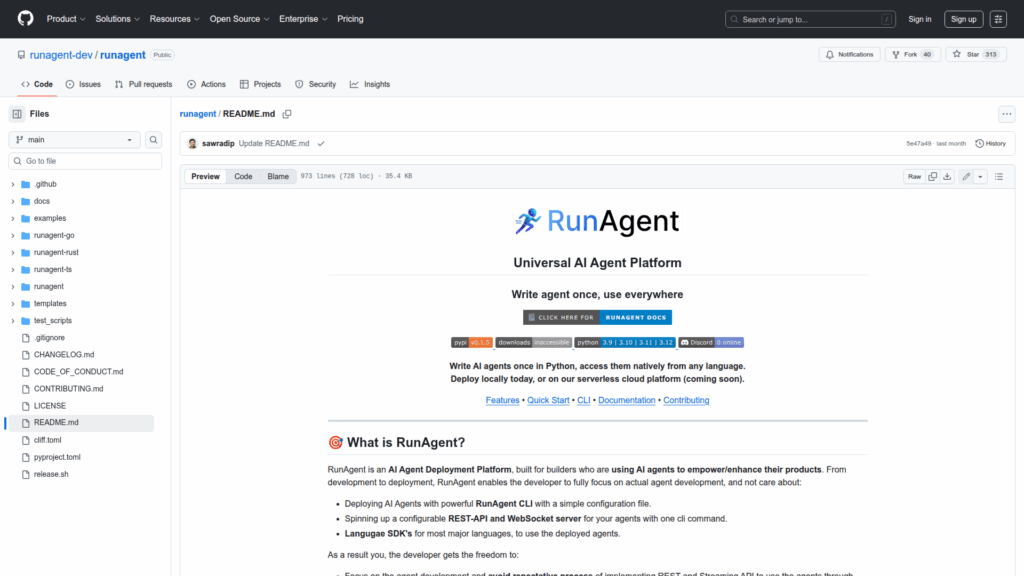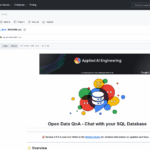runagent
Basic Information
RunAgent is an AI agent deployment platform and developer toolkit designed to let teams write agents once in Python and access them natively from multiple languages. It provides a local FastAPI development server, a CLI for project lifecycle commands, configuration via a runagent.config.json file that exposes entrypoints from your code, and multi-language SDKs to invoke those entrypoints as if they were local functions. The project is framework-agnostic with templates and guides for popular Python agent frameworks and supports both synchronous and streaming responses. It also documents a clear path from local development to one-command cloud deployment (serverless cloud platform coming soon) and outlines enterprise features planned for future releases. The repository includes templates, examples, comprehensive documentation, and tools for monitoring, logging, and debugging agent behavior.








